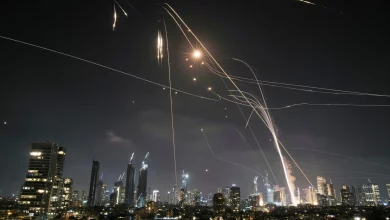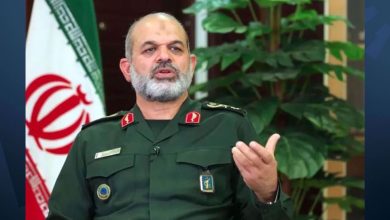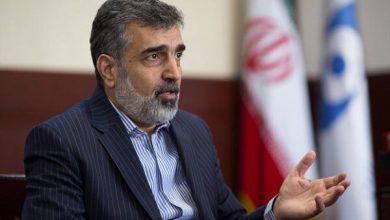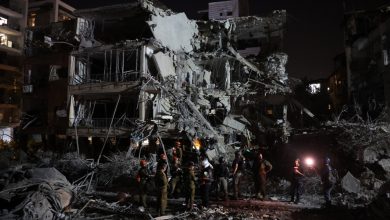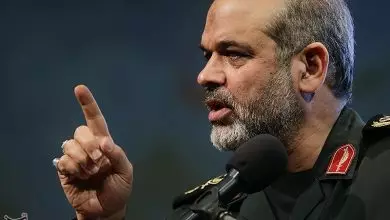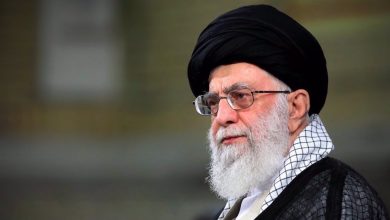Profile: Major General Mohammad Bagheri, the Strategic Architect of Iran’s Military Evolution
In early Friday strikes conducted by Israeli forces targeting residential and nuclear facilities in Iran, Major General Mohammad Bagheri, the Chief of Staff of the Iranian Armed Forces, was martyred.
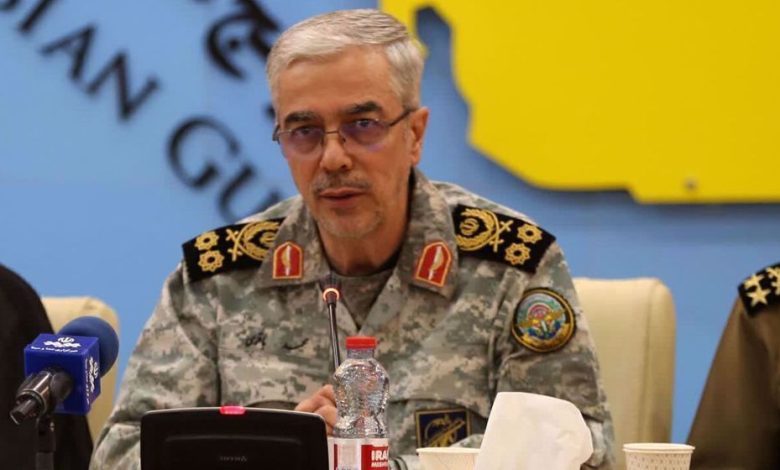
In the early hours of Friday, a coordinated assault took place targeting Tehran and several other cities, resulting in the assassination of high-ranking military officials and nuclear scientists.
Mohammad Hossein Afshordi, also recognized as Mohammad Bagheri, was born in Tehran in 1960. His familial heritage is linked to the village of Afshar located in Heris County within the East Azerbaijan province.
Major General Bagheri began his distinguished career with the Islamic Revolution Guards Corps (IRGC) in 1980, where he initially joined the intelligence division. He maintained an active role within the IRGC during the entirety of the imposed war.
During the Islamic Revolution, he was completing his senior year of high school. Following the revolution’s conclusion, he embarked on a path of technical education, securing admission to the mechanical engineering program at Tehran Polytechnic University.
He pursued his studies until 1980, and that summer, he officially joined the Islamic Revolutionary Guard Corps (IRGC). From 1980 onwards, he was instrumental in the activities of the IRGC, especially during the Iran-Iraq War.
From 2002 to 2014, he held the position of Deputy for Intelligence and Operations within the General Staff of the Armed Forces.
From 2007 to 2016, he simultaneously fulfilled the role of Deputy Coordinator at the Khatam al-Anbiya Central Headquarters. Additionally, between 2014 and 2016, he was appointed as the Deputy for General Affairs and Joint Operations at the General Staff.
In November 2019, the U.S. Department of the Treasury placed him on its sanctions list. Similarly, in October 2022, the Canadian government imposed sanctions on him, citing politically motivated allegations.
In the same month, the European Union imposed sanctions on him over accusations of transferring drones to Russia for deployment in the Ukraine conflict—allegations that Iran has dismissed as unfounded.
Major General Bagheri, who possessed a Ph.D. in political geography from Tarbiat Modares University, also served as a faculty member at the Supreme National Defense University.
Alongside his executive duties, he held teaching positions at the Supreme National Defense University and Tarbiat Modares University.
He co-founded the Iranian Geopolitics Association, joining prominent figures including Mohammad Bagher Ghalibaf, Yahya Rahim Safavi, and Gholam-Ali Rashid.
During his tenure in the armed forces, Major General Bagheri occupied a number of pivotal roles in both military strategy and academia. He was appointed as the Head of Intelligence and Operations for the IRGC Ground Forces, and subsequently held the position of Head of Intelligence at the Karbala Headquarters and the Khatam al-Anbiya Headquarters.
He additionally held the leadership position in the Intelligence Directorate of the General Staff of the Armed Forces. Furthermore, he assumed the role of Deputy Coordinator at the Khatam al-Anbiya Central Headquarters.
In addition to his military duties, Major General Bagheri served as a faculty member at the Supreme National Defense University, playing a vital role in shaping Iran’s defense doctrine through academic contributions.
In 2008, Bagheri ascended to the rank of Major General, and due to his vast experience within the intelligence and operational divisions of Iran’s armed forces, he was instrumental in formulating and sanctioning essential military strategies. Among his prominent achievements was the 1996 cross-border operation into Iraq, targeting the bases of Komala and the Democratic Party of Iranian Kurdistan, which were active in western Iran.
On June 28, 2016, Ayatollah Seyyed Ali Khamenei designated him as the Chief of Staff of the Iranian Armed Forces, taking over the role from Major General Seyyed Hassan Firouzabadi.
Prior to that, Bagheri held the positions of Deputy for Intelligence and Operations, followed by Deputy for General Affairs and Joint Operations at the General Staff.
In a statement released on Friday, the leader of the Islamic Revolution underscored that those who step into the roles of fallen commanders will promptly carry on with their assigned missions.
The Leader issued a stern warning, stating that through its actions, the Zionist regime has paved the way for a bitter and painful fate, which it will inevitably encounter.

